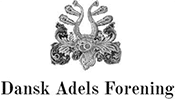Definition
A noble person is characterized by being a married child of a noble father. The nobility also includes non-noble-born women who are married to noble men. In addition, there are Danes and foreigners that HM the Queen may wish to elevate in the Danish nobility.
No privileges
The original privileges of the nobility – tax freedom, political influence through the Reichsrat, exclusive right to the highest offices of the state, exclusive right to the estates (manors) – it was deprived in 1660. However, some legal privileges existed until 1849. From 1671 to 1920s the possessors (county counts and county barons ) of about half a hundred clause-bound estates (len) certain privileges.
Today, only a few of Denmark’s manors are in noble ownership, and only a few percent of Denmark’s nobles are landowners.
The significance of the genus
When nobility is inherited through the father, it is because it follows the lineage. The genus is important for the identity of the nobility. You belong to the family of your father and grandfather, and it is thus genetically determined which family you belong to. One cannot ‘change lineage’, so that one soon belongs to one lineage, soon another. If a man caused by the name law assumes the name of another genus, e.g. the name of his wife’s or his grandmother’s family, he and his children will not belong to this family – they just carry its name.
Foreign nobility
The members of the Danish nobility are not necessarily Danish citizens. A family, or part of it, may have settled abroad. Certain Danish noble families have never even lived in Denmark. On the other hand, in Denmark there are not only Danish families who have obtained foreign nobility, there are also foreign noble families who have immigrated to Denmark and have obtained Danish citizenship. The members of these genealogical categories are thus legitimate Danes and legitimate nobles, but they do not belong to Danish nobility. In addition, more than 40% of the Danish noble families also belong to foreign nobility.


